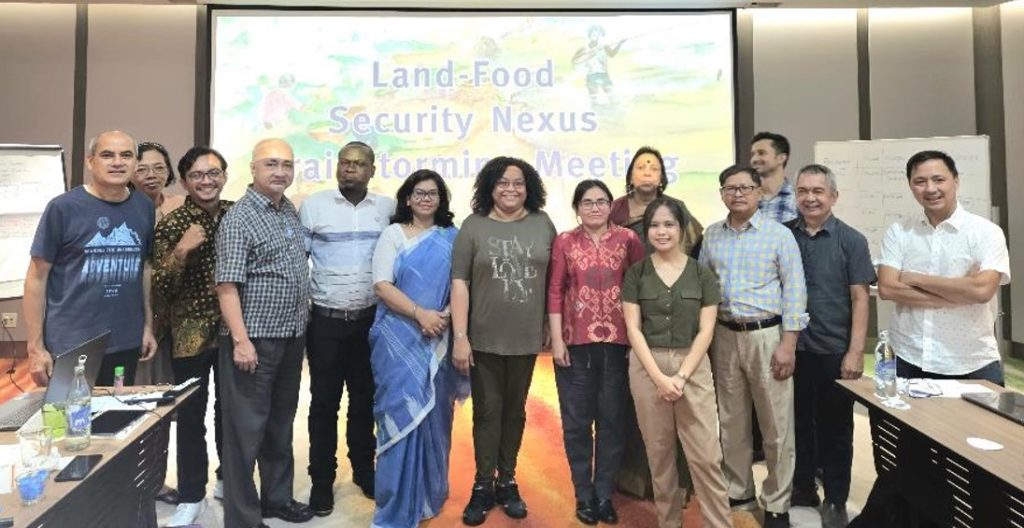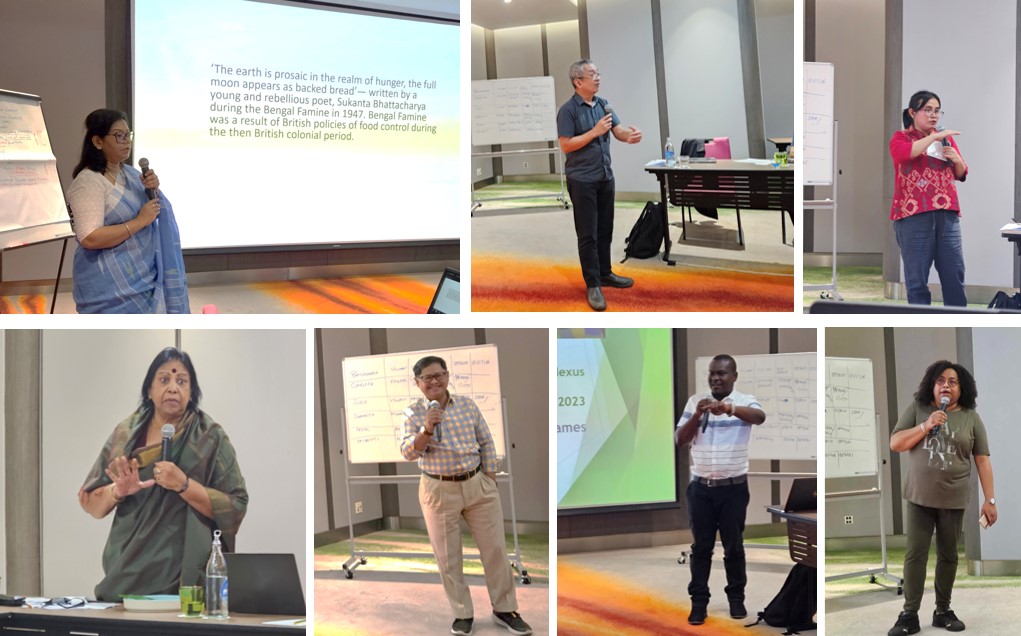CSO reps from Asia and Africa conduct brainstorming session for land-food security nexus

Close to 12 percent of the world’s population, roughly 928 million people, are severely food insecure. Malnutrition is on the rise, with close to 150 million stunted children under five years of age (22 percent of the world’s children), 45 million suffering from wasting, and 39 million who are overweight due to eating the wrong kinds of food. This situation does not bode well for the world’s future given the long-term impact of malnutrition on a population’s health and productivity.
Central to the discourse on food security is land tenure security. Improved tenurial status provides households with a better sense of overall security that comes from their independence to make informed decisions over lands, crops and livelihoods. Also, there is widespread recognition that secure land or property rights among the rural poor can promote broad-based growth and help expand the rural economy.
During the 9th Global Land Tool Network (GLTN) Partners’ Meeting (2-4 May 2023; Nairobi, Kenya), participants highlighted the importance of the land-food security nexus. This prompted the GLTN Rural CSO Cluster to formulate its advocacy agenda on the land-food security nexus and outline key actions contributing to the four strategic objectives of the GLTN strategy.
It is in this context that a brainstorming meeting on land-food nexus was organized by the Asian NGO Coalition for Agrarian Reform and Rural Development (ANGOC) on behalf of the GLTN Rural CSO Cluster on 15 to 16 August, 2023 in Bangkok, Thailand.
The brainstorming meeting: (1) articulated the link between land and food security; (2) initiated the formulation of the agenda on Land-Food Security as part of the Rural Cluster’s Work Program; and, (3) agreed on next steps toward the finalization of the cluster’s agenda on the land-food nexus.
The participants shared their perspectives and country-specific experiences that illustrated how land and food are interrelated.

Several consensus points were reached during the course of the meeting, among these were: (1) centrality of land tenure in the food security discourse; (2) need to focus on smallholder producers; (3) need to focus on the youth due to ageing farmer populations in many countries; and, (4) need to link food producers and consumers (rural-urban linkages) for more control over the food value chain.
The participants drafted the goal of the cluster in relation to land-food nexus:
“Secure land tenure security for an inclusive, equitable, and sustainable food system built on smallholder production that ensures food security for all”
Three key results areas were initially identified: a) strengthened (individual and communal) tenure security of smallholder food producers, b) facilitated participation and influence in the food value chain, and c) strengthened smallholder food production system based on sustainable agriculture towards healthy food and environment.
A draft cluster agenda will then be prepared and subsequently reviewed by the rural cluster members.
This initiative is supported by the Global Land Tool Network (GLTN) as part of the “Strengthening land governance through promotion of land tools and approaches” contributing in strengthening the formulation and monitoring the implementation of pro-poor land policies and programs through evidence-based advocacy.
#
